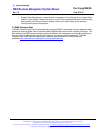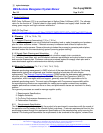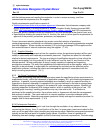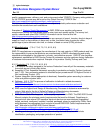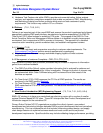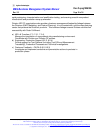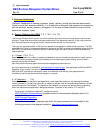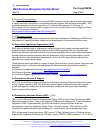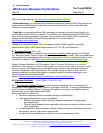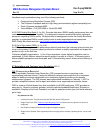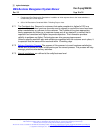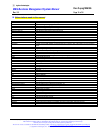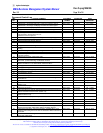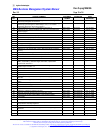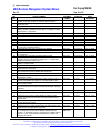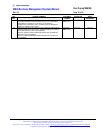
EMG Business Management System Manual
Doc # epsg1026386
Rev. 112
Page 29 of 35
The user of any printed copy of this controlled document is responsible for verifying it is the correct version prior to use. Hard copies are uncontrolled.
This manual contains links to subordinate documents that are restricted to Agilent personnel only
and may not work if accessing this document from a public site.
The current version is available at the EMG Document Map website: http://emg.communications.agilent.com/quality/bms/040318_docMap.asp
(c) Agilent Technologies, Inc. 2002, AGILENT TECHNOLOGIES
Feedback may be submitted using one of the following methods:
Customer Issue Resolution Process (CIR)
The Customer Feedback web site: http://emg.communications.agilent.com/quality/voc/
Email: Customer-feedback,EMG
Voice Mailbox: (719) 590-3855 or Telnet 590-3855
9.6.2 EMG Quality Blue Book (4.1e, 8.4): Provides data about EMG‟s quality performance from our
customers‟ perspective where feasible. It is designed to measure areas which affect customers‟
perception regarding EMG‟s quality. Multiple levels of management review the Quality Blue Book
quarterly to understand EMG‟s overall quality trends to make improvements as appropriate.
EMG Quality Blue Book web site: http://intuition.is.agilent.com/bluebook/Default.aspx
9.6.3 Out of Box defect (OBD): (4.1.e, 8.4)
An OBD is a Performance or Non-performance defect found when the customer opens the box and
turns on the product. Customers expect products to conform to quality expectation and expect the
product to turn on the first time.
Customer reliability expectations: 1) Out of box experience, where Agilent‟s reputation can be
questioned, 2) Early lifetime, where the specific product‟s quality is in doubt, 3) Warranty period,
where reliability perceptions are developed, and 4) Post-warranty period, where service delivery is
measured.
9.7 Escalations and Customer Issue Resolution (8.2.1)
CIR (Customer Issue Resolution)
EMG's worldwide Customer Issue Resolution (CIR) process focuses on resolving cross-
organizational customer issues. Timely and effective customer issue resolution is an important
aspect in building customer satisfaction and in sustaining Agilent‟s position as the premier
measurement company. The CIR process was implemented worldwide on February 1, 2007 to
provide a simplified common tool to report and resolve cross-organizational customer issues.
CIRF is a web or Outlook based form that is available to all EMG employees. CIRF provides an
easy way to: Report a customer problem, provide customer feedback/compliment, Request an
escalation, Request a 2nd Level Escalation, and ask for assistance when you don't know where to
go for help.
Key elements of CIR:
Common Process: The field, divisions and SSU will use the CIR process.
Single Entry Point: CIRF (Customer Issue Reporting Form) will be the primary input tool for front-line
employees.
One Platform: Siebel will be the sole content management system.
Single Point of Contact: Each organization has one single point of contact (a specific person, not an email
node).



